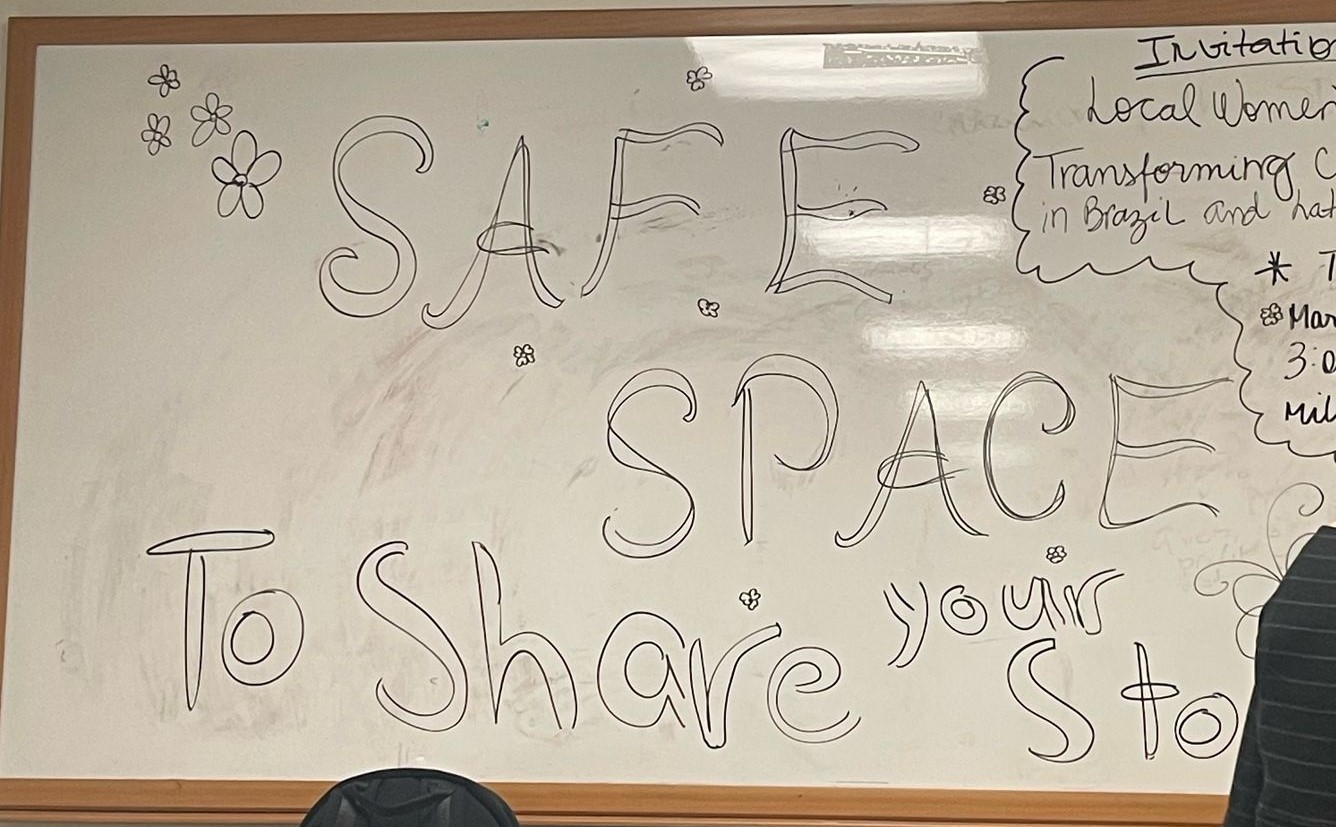When 'Safe Spaces' Silence Dissent: A Glimpse into Canada’s Radical UN Agenda
I’ve got good news and bad news. The good news is that if you are curious about what ideas Canadians push at the U.N., you’ve come to the right place; the bad news is that it is as shocking and radical as you might expect.
On Wednesday, I attended an event organized by the Canadian Research Institute for the Advancement of Women, entitled “Canada’s Implementation of the Beijing Declaration and Platform for Action.” Canadians filled the room. The event began in usual U.N. fashion: with a land acknowledgement. This made sense, since one of the panelists works for the Ontario Native Women’s Association. The room hummed in religious observance when the moderator acknowledged our presence on traditional native land. Scribbled on the white board were the large words: “SAFE SPACE TO SHARE YOUR STORY.” I was wondering if it would be a safe space for pro-life voices. Spoiler alert: it turns out that it was not.

Progressive speakers lined the panel: Vicky Smallman, from the Canadian Labour Congress; Ingrid Green, from the Ontario Native Women’s Association; Robyn Hoogendam, from Women’s Shelter Canada; and Debbie Owusu-Akyeeah, from Action Canada for Sexual Health and Rights. The topic? How has Canada been successful in implementing the Beijing Agenda—including SRHR—and how can we improve?
The speakers came from many different angles. Vicky Smallman focused on the importance of DEI and women’s inclusion in the work force. She warned against privatizing the health sector and maintained that it was imperative that the Canadian government continues to fund healthcare—of course, including abortion. In fact, she even spoke critically of the new leader of the Liberal Party, Mark Carney, who the panel referred to as the “King of Neo-liberalism.” That is jargonized code for: he is not progressive enough. One of their main criticisms was that Carney has “mused about cuts to public services.” They even took issue with his rhetoric that healthcare should be given to those who “need” it. Rather, they said, it should be a universal right for all people.
Robyn Hoogendam spoke about the rise of gender-based violence in Canada, especially since the pandemic. She explained that worsening economic conditions and rising inflation has only increased rates of domestic violence (economic conditions, I am sure, that would continue to decrease under NDP economic policies, which they endorse). Nonetheless, I couldn’t help but note the obvious elephant in the room: abortion, which the panel sees as a “human right,” not only violates the rights of unborn humans, but is often done based on gender. Thus, it is often a clear-cut example of gender-based violence.
Finally, Debbie Owusu-Akyeeah evaluated the state of Canada from the perspective of SRHR—which she claimed was her “favorite topic” to talk about. She started by noting that Canada has no criminal laws regulating abortion. She saw that as a good thing. Nonetheless, even though Canada is completely legal throughout all nine months of pregnancy, she claimed that the main battle that now needs to be fought is “access.” This, she said, “defeats the universality of the healthcare system” that feminist “comrades” fought for. Furthermore, she identified “stigma” as an issue that Canadians need to fight back against.
I went up to ask a question to Debbie regarding Action Canada’s call to action to the government to secure SRHR, including “preventing anti-choice organizations from spreading disinformation on abortion.” I asked her to explain how the government should do that, and how that is reconcilable with free speech rights?
A friend of CLC was filming my question in the back, which prompted an organizer of the event to confront him. She asked him who he was with. When he said “CLC,” she further asked him to specify. She told him to stop filming, which he complied with. Nonetheless, when they saw him taking notes, she came back to ask him to leave because “people felt unsafe.” Mind you, this is after he gave up his seat at the beginning of the event for other women in the crowd. I guess it wasn’t a safe space for his views—which he didn’t even voice.
One thing that truly shocked me was when another woman took the mic to ask a question. She said that one of the biggest problems we are facing in Canada is the rise of “parental rights.” Yes, she actually said “parental rights” movements are an issue—that they put “transgender and queer kids” at risk. Then she added that many of these adults are actually women. Debbie nodded on the panel and looked around the room in correction: actually, she said, “they are mothers.” Is a mother’s maternal instinct that she should know if her child is identifying as another gender or going by a different name that insidious? I could not believe what I was hearing.
Throughout the event, I was stunned by the extreme proposals supported by most people in the room. More than that, I was stunned by the cognitive dissonance, especially on questions relating to the economy. The panelists recognized and criticized the dire economic state of Canada—and yet, they continued to propose measures that are more extreme than even Liberal policies. The room was in definite agreement that no matter what, Poilievre couldn’t be elected, because there is a growing “right-wing pushback” in Canada against “women’s rights.”
We are the pushback against the lies and abuses of the abortion industry; we are the pushback against the nonsensical and upsetting fact that abortion is completely deregulated in Canada; we are the pushback against inappropriate sexual education for our children; we are a pushback that is growing in influence. We are the future of Canada.


